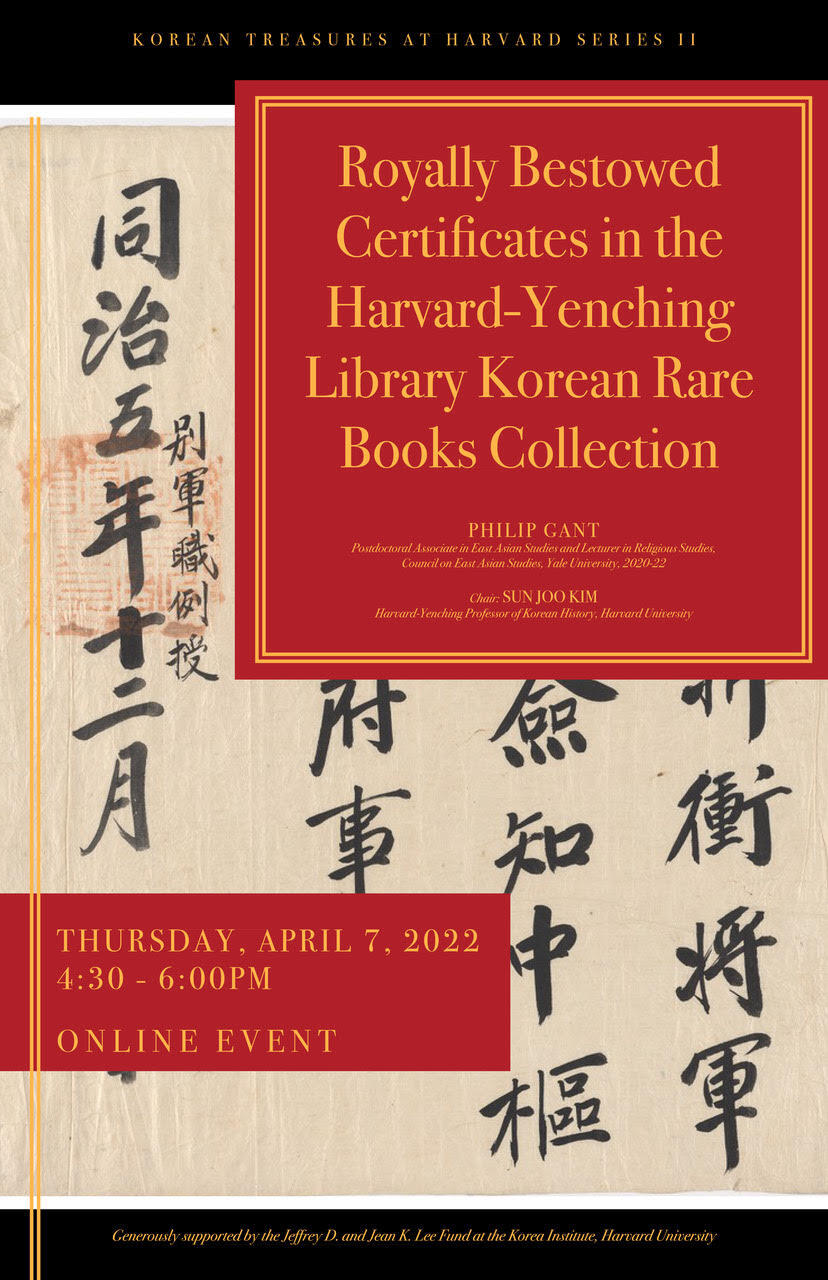Date:
Location:
Korean Treasures at Harvard Series II

Philip Gant
Postdoctoral Associate in East Asian Studies and Lecturer in Religious Studies, Council on East Asian Studies, Yale University, 2020-22
Philip Gant is a historian of premodern East Asia; his research focuses on Korean legal and social life over the centuries. His dissertation “Taking Refuge in the Law,” explored the tortuous litigation in which Buddhist monasteries and monastics in Chosŏn Korea (1392-1910) grew increasingly enmeshed to arrive at views of an overlooked religious landscape. Gant received his Ph.D. in History and East Asian Languages (HEAL) at Harvard University, and his bachelor’s degree in History and East Asian Studies at Yale College. From 2017 to 2019, he was a William R. Tyler fellow at Dumbarton Oaks in Washington, D.C. In the field, he was a summer fellow at the Academy of Korean Studies, and a 2017-2018 visiting student at the Kyujanggak Institute at Seoul National University. A Richard U. Light fellow and a Blakemore Freeman fellow in Seoul, Korea, he was a Greenberg/Yale-China Initiative scholar in Beijing, China, and a Reischauer Institute summer language grantee in Kanazawa and Yokohama, Japan.
Chaired by Sun Joo Kim, Harvard-Yenching Professor of Korean History, Harvard University
Abstract:
In the documentary kingdom of Chosŏn Korea (1392-1910), certain matters demanded the highest of certifications: that of the king. These included appointment to government office; success in state examinations; as well as special bestowals of sobriquet, title and rank, and prerogative; their certifications comprise the class of documents referred to as kyoji (敎旨) -- the orders of the king. In this presentation, I introduce the twenty-nine such standalone manuscript certificates housed within the Harvard-Yenching Library's Korean Rare Books Collection, along with a manuscript volume transcribing still more. Using this on-campus corpus, I provide a brief primer of the documentary format and overview of its evolution. I then show how documents of this type have long been a rich source of insight into Korean social, administrative, and documentary life.
***
To attend this online event, please register here.
Generously supported by the Jeffrey D. and Jean K. Lee Fund at the Korea Institute, Harvard University